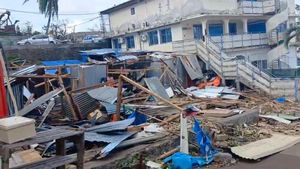Indonesia has officially embarked on one of the most ambitious urban projects of the 21st century: relocating its capital from the congested metropolis of Jakarta to the new city of Nusantara, situated approximately 1,200 kilometers away on the island of Borneo. Despite the excitement surrounding this monumental change, challenges loom as the nation struggles to transform vast stretches of jungle land, marked by high expectations and significant hurdles.
The project, which began construction amid much fanfare back in 2022, seeks to relieve Jakarta, which is not only overcrowded—housing around 30 million residents—but is also considered the fastest sinking city globally due to excessive groundwater extraction and rising sea levels. This massive undertaking aims to enable better resource distribution throughout Indonesia, particularly benefiting regions outside of Java, which currently holds over 60% of the country’s economy.
Recently, Nusantara was ceremoniously inaugurated during Indonesia’s annual Independence Day celebrations, marking the first time such festivities were held on the construction site of this future capital. President Joko Widodo, who has championed this project since announcing it back in 2019, expressed the significance of Nusantara as a chance to begin anew, stating, "This city represents our future, laying the groundwork for the generations of Indonesians to come."
The construction of Nusantara is projected to cost around $35 billion—but only 20% of this amount is expected to come from government sources, with the remaining funding relying heavily on private investments. While enticing investors with long-term land rights of up to 190 years and tax incentives, the wave of funding enthusiasm has yet to meet the expected commitments, raising questions about the project's financial sustainability.
Environmental concerns have also surrounded this megaproject, especially since Nusantara is being developed on land once dominated by hardwood plantations. Critics have raised alarms about its impact on endemic species, including orangutans and long-nosed monkeys, as the push for urban development threatens their habitats. Local communities have expressed fears over their displacement without adequate compensation.
Despite these challenges, construction workers have been tirelessly toiling away at what will eventually be complete roads and urban infrastructure, eager to meet the fast-approaching deadlines. With plans to create parks, bike paths, and green spaces, Nusantara embodies the vision of being not just any city, but rather, what the government describes as an eco-city, aiming for carbon neutrality by 2045.
Looking forward, the first wave of civil servants is set to relocate to Nusantara, ideally by fall 2024, with the government planning to accommodate around 1.9 million residents there by 2045. The transition is set against the backdrop of Jakarta's imminent risk of submersion—an issue exacerbated by the city’s traffic and pollution problems—making the move to Nusantara increasingly urgent.
While the new city has captured significant attention at home and abroad, local populations and indigenous groups have voiced skepticism over the actual benefits they will receive. Activists recently staged protests near the site, highlighting the fears of exploitation and challenging the government’s narrative of Nusantara as purely progressive blueprints.
The construction might be behind schedule, but momentum is still present within the ranks of Nusantara's authority. Officials curiously assure citizens and stakeholders alike of nearing completion across the project's phases and the potential to transform the cultural and socio-economic fabric of Indonesia.
The upcoming Indonesian elections may also reshape the fate of Nusantara, as President Widodo’s successor, Prabowo Subianto, has expressed commitment to keeping the project alive. Nonetheless, uncertainties linger as many await to see how the new administration prioritizes this ambitious endeavor amid pressing economic needs.
Will Nusantara fulfill its promise and offer Indonesia not only economic improvement but also rectify Jakarta's historical inequities? Only time will reveal whether this new capital can truly balance the scales for its nation’s sprawling archipelago.



